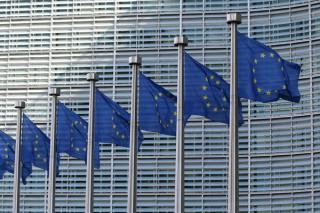
Regulatory update: Proposal for a ban on goods made using forced labour (EUFL Ban)
- Post Date
- 18 March 2024
- Read Time
- 7 minutes

In response to worldwide efforts to combat the utilisation of forced labour in supply chains, like the adoption of the Uyghur Forced Labour Prevention Act (UFLPA) in the US, the European Union (EU) is presently drafting a Regulation to forbid the sale of products manufactured through forced labour.
On 5 March 2024, the European Parliament (EP) and the Council reached a provisional agreement on a draft text that now needs to be adopted by both institutions.
Unlike the US UFLPA, this proposed Regulation (article 3) covers all product categories to date and it is not focused on any specific region. So, the ban will apply to any goods produced through forced labour and sold in the EU or exported.
How will companies be affected?
Authorities will be able to investigate companies if they suspect they are selling or exporting products manufactured with forced labour. Based on the proposal of Regulation, every company is potentially affected, regardless of its size and sector.
What are the consequences of an investigation?
Investigations could result in a prohibition of producing or selling the specific products within the EU, an order to withdraw those products from the EU market, or to dispose of the products. Fines could also be imposed on non-complying companies.
What will trigger an investigation under this Regulation?
According to the original Regulation proposal, we can highlight the following triggers:
- Authorities will review accessible company data to evaluate the possibility of forced labour being used within their supply chain. What factors are they considering?
The focus will be “on the economic operators involved in the steps of the value chain as close as possible to where the risk of forced labour is likely to occur and take into account the size and economic resources of the economic operators, the quantity of products concerned, as well as the scale of suspected forced labour” (article 4.2).
In other words, authorities will assess companies and products to identify those that pose a greater risk based on their size, location, position in the supply chain, and type of product. According to the EP, the current draft foresees that the Commission will create a list with high-risk economic sectors and geographical areas that will have a higher focus for future investigations. An example could be the PV panels sector: given the forced labour context of PV panels and its strategic importance for the EU, it is probable that authorities will prioritise PV panels. - Additionally, authorities will consider numerous sources of information that may prompt an investigation. These include:
i. any information received by other people / companies / associations;
ii. database that will be created by the Commission including data on forced labour risks in specific geographic areas / products;
iii. information received from other authorities;
iv. other public risk indicators and information;
v. authorities may request from companies information on their management systems to identify, prevent, mitigate or bring to an end risks of forced labour (article 4.3, original proposal) in their operations/value chains. It will be relevant if companies demonstrate that they carry out due diligence and implement measures to remediate the risks of forced labour identified. - If the analysis of all that information results in identifying a substantiated concern that a company is placing in the EU market or exporting products made with forced labour, the authorities will initiate an investigation. According to article 5 of the original proposal, companies under investigation must submit to the authorities any information that is relevant and necessary for the investigation, including information identifying the products under investigation, the manufacturer or producer of those products and the product suppliers.
However, unlike the UFLPA (which places the burden of proof on companies if the imported products come from the identified risk areas, i.e. Xinjiang), the text of the proposal for the EUFL Ban suggests that it is the authorities who should bear the burden of proving that forced labour has been used at any stage of the value chain.
What would be the timeline for implementation?
The current stage of the legislative procedure implies that this Regulation could be adopted soon. The effects of the Regulation will be applicable three years after its entry into force.
How can companies prepare?
Even when there is a three-year delay between the entry into force of the Regulation and its applicability, companies should start preparing to have their due diligence systems ready to be able to identify any risk of forced labour across their supply chains. Some areas companies can focus to prepare are:
- Updating / enhancing due diligence management systems.
- Creating visibility of supply chain and screening suppliers.
- Engaging with relevant industry associations.
- Proactive supplier management (engage with suppliers beyond Tier 1).
Looking at market responses to similar legislation, some initiatives are being developed that can help companies increase their supply chain transparency results. For instance, the Solar Energy Industries Association (SEIA) is one example of the solar industry's response. SEIA has created the Solar Supply Chain Traceability Protocol to assist its members in adhering to the Uyghur Forced Labour Prevention Act. Similar initiatives could be expected in the future as the details of the proposed Regulation are better defined in further stages of the legislative process.
How EUFL Ban requirements link to other relevant EU due diligence legislations?
The EU is increasingly developing due diligence legislation. Some examples include the EU Battery Regulation and the EUCSDDD (still under development). Companies can expect similar legislation at national level (like the German Supply Chain Act). Even though requirements across legislations will not always overlap, all of these legal acts focus on requiring companies to enhance their due diligence management systems and to increase transparency, risk identification, assessment, and mitigation across their supply chains. In the case of EUFL Ban, authorities should ultimately determine whether or not a product was manufactured with the use of forced labour. However, when it comes to consequences for companies, “the competent authority shall duly take into account where the economic operator demonstrates that it carries out due diligence on the basis of identified forced labour impact in its supply chain, adopts and carries out measures suitable and effective for bringing to an end forced labour in a short period of time” (article 4.6 in the original proposal).
How can SLR support?
Together with recent SLR acquisition, RCS Global - the proven leader in responsible sourcing of raw materials - we have been advising industry leaders from the automotive, battery manufacturing, energy and mining industries to align their due diligence management systems and targets to meet or exceed the expectations of the several regulations and standards through various activities and services.
SLR regularly engages with key stakeholders to anticipate and prepare for the impacts of the EUFL Ban on companies and the market, via:
- Expert interpretation of the EUFL Ban and the provision of reports assessing the evolving regulatory landscape to assist your company navigate existing and potential risks.
- Gap analysis of company policy, processes, and management systems against the due diligence requirements set by the EUFL Ban for the identification, prevention, mitigation, and remediation of forced labour.
- Supplier evaluation.
- Supply chain assessments.
- Staff and supplier training on ESG risk management.
- Responsible sourcing and risk mitigation strategy.
- Mapping and auditing of full supply chains to identify and trace relevant data.
- Vine digital tool for the effective visualisation and ease of management of supplier data based on audit results.
Recent posts
-

-

-

Understanding sound flanking: Fire alarm speaker cable conduits in multi-family buildings
by Neil Vyas
View post